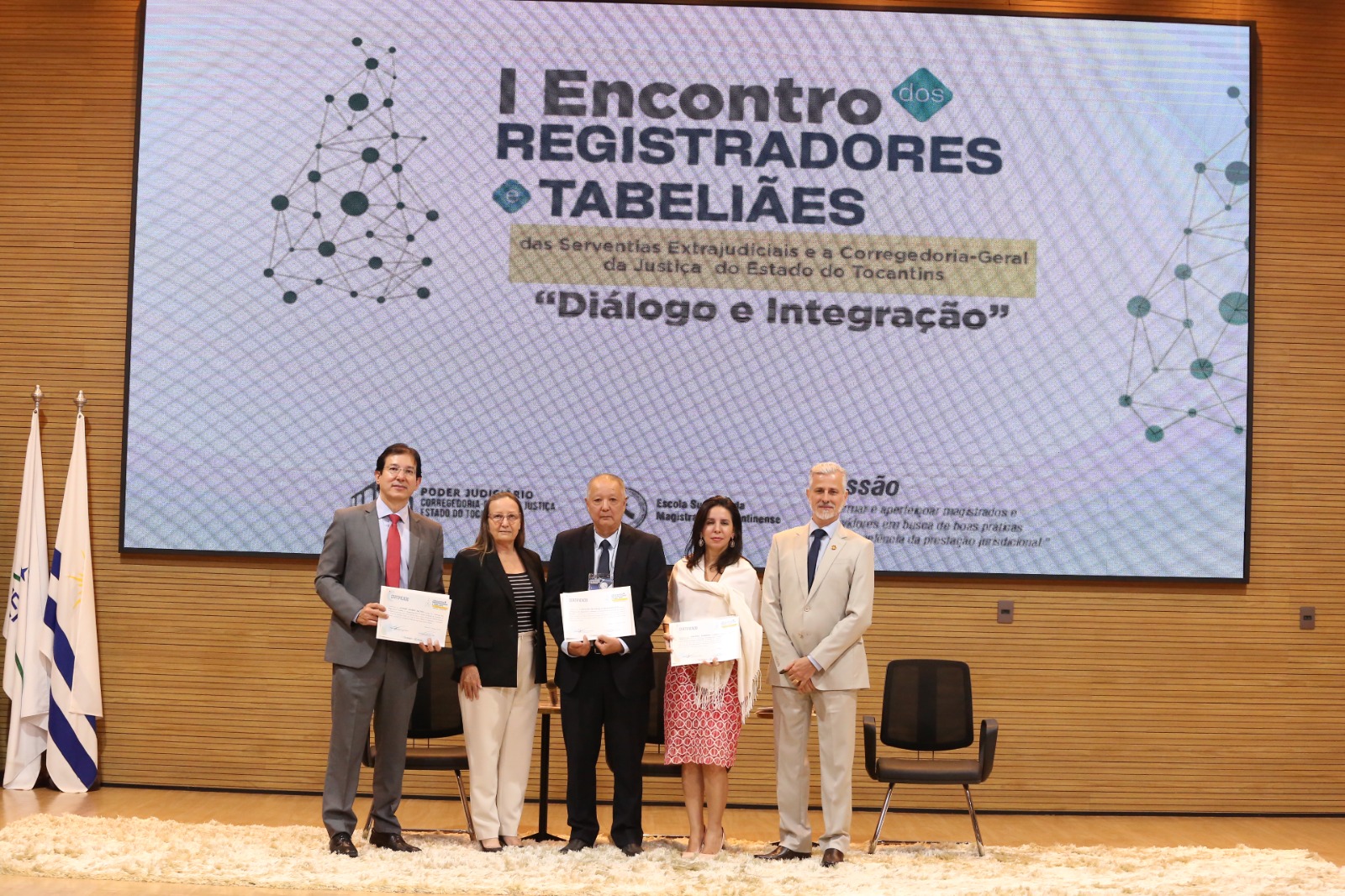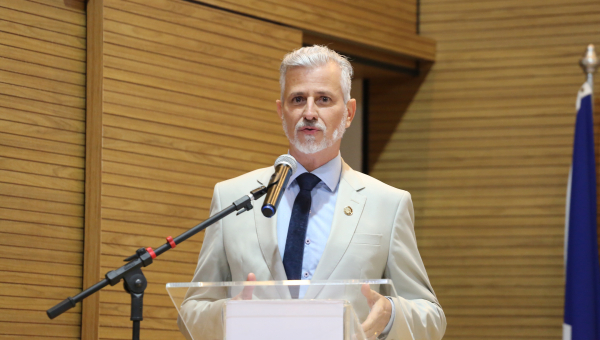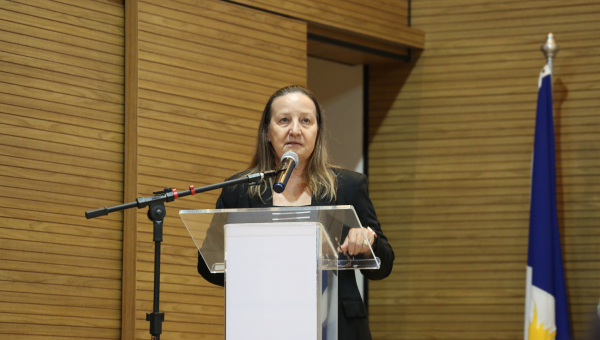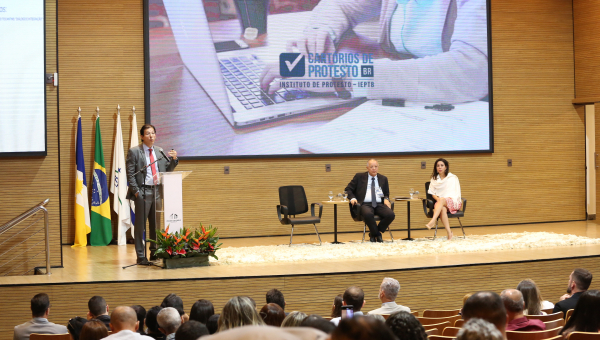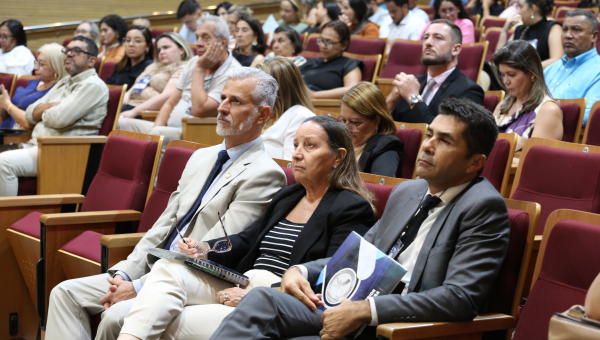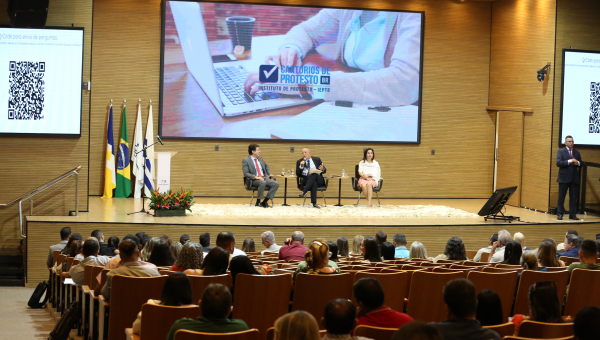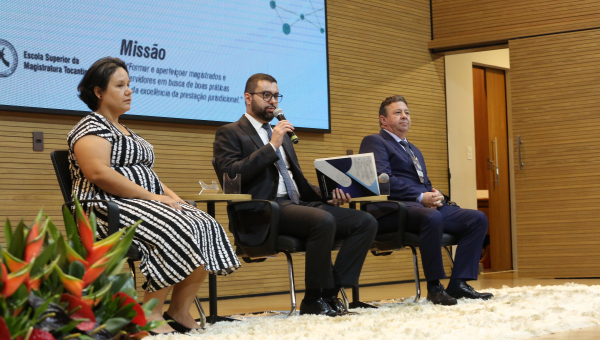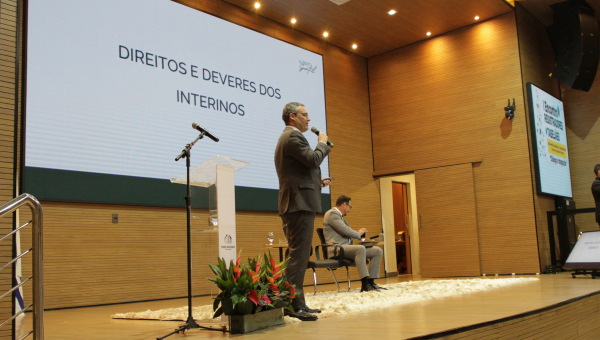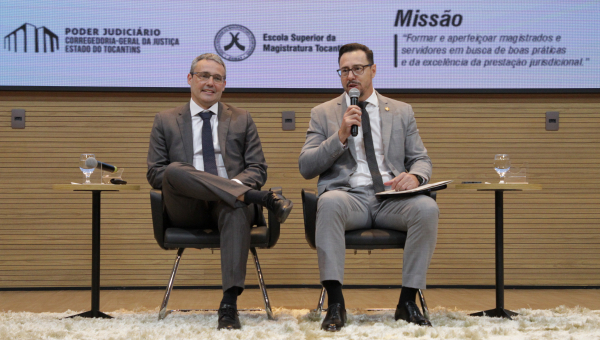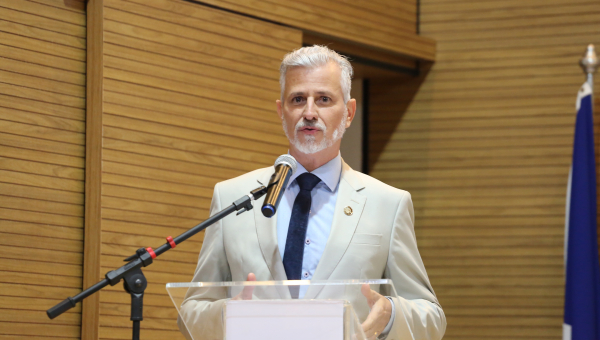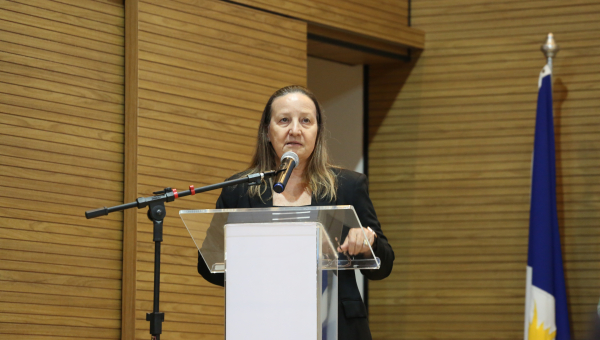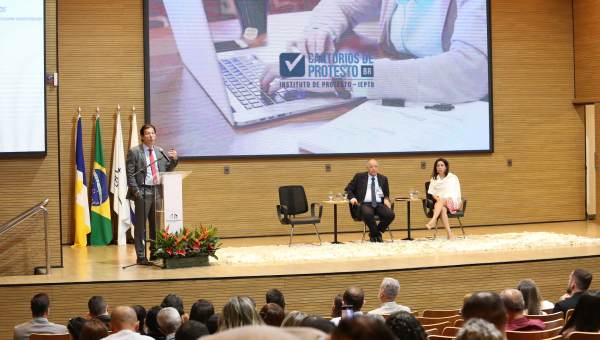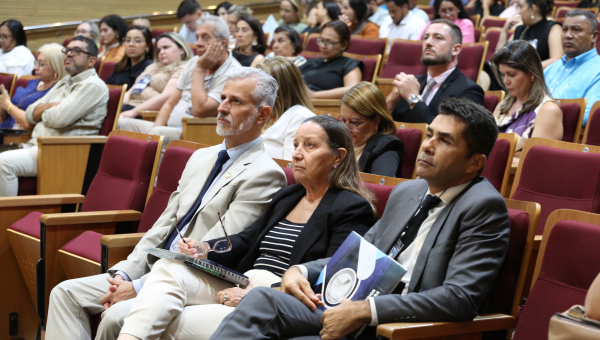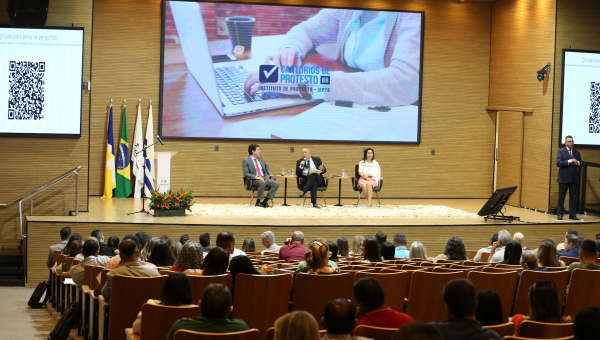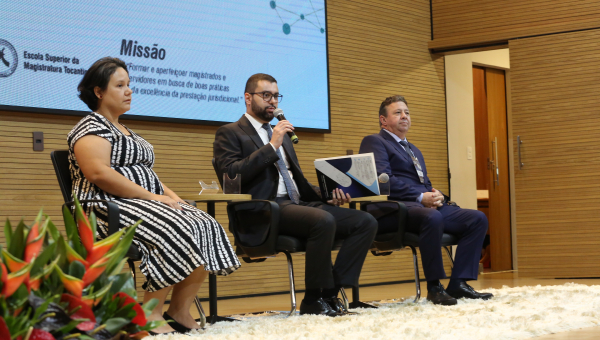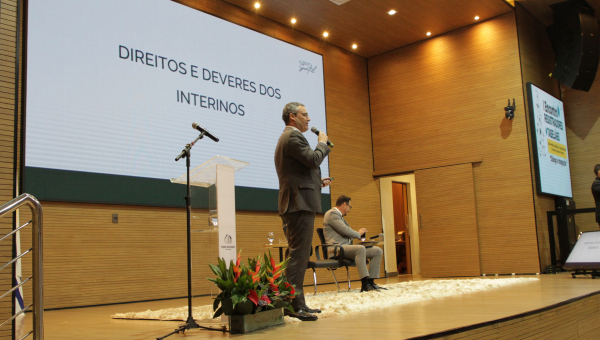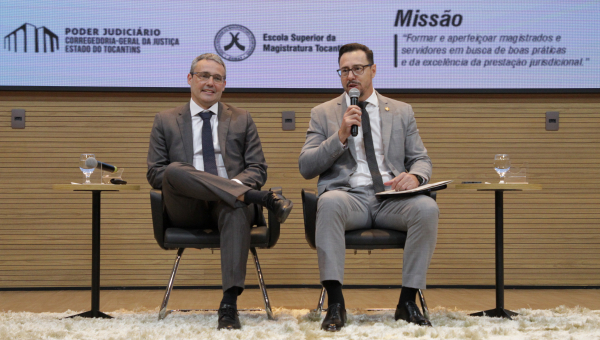
The lecture on Rights and Duties of Interims opened the afternoon debates on Thursday (August 15th), during the First Meeting of Registrars and Notaries of Extrajudicial Services and the General Internal Affairs of Justice of the State of Tocantins in the afternoon. In all, seven important topics were dealt with on the second day of the event promoted by the Judiciary.
Addressing the Provision 176, of July 23rd, 2024, state law Judge and Doctor of Laws Alberto Gentil of the State of São Paulo pointed out that the act legitimizes the figure of the interim and establishes that they are agents of the State, subject to the public law regime, with a remuneration ceiling and responsibilities in line with those of public servers.
In this context, the speaker stressed the importance of the role of interims in the extrajudicial system and the need for clear and effective regulation of this activity to guarantee the quality and continuity of the services provided to the population.
During his talk, Gentil highlighted two main points: the capillarity and technical quality of extrajudicial services, which involve more than 15,000 registry offices throughout Brazil. The speaker mentioned that the extrajudicial activity is recognized for its quality in both the legislative and executive spheres, pointing to the evolution of the service with the introduction of provisions such as the articles 216-A and 216-B of the Civil Code, which regulate issues such as usucaption and compulsory justification.
Electronic Registration
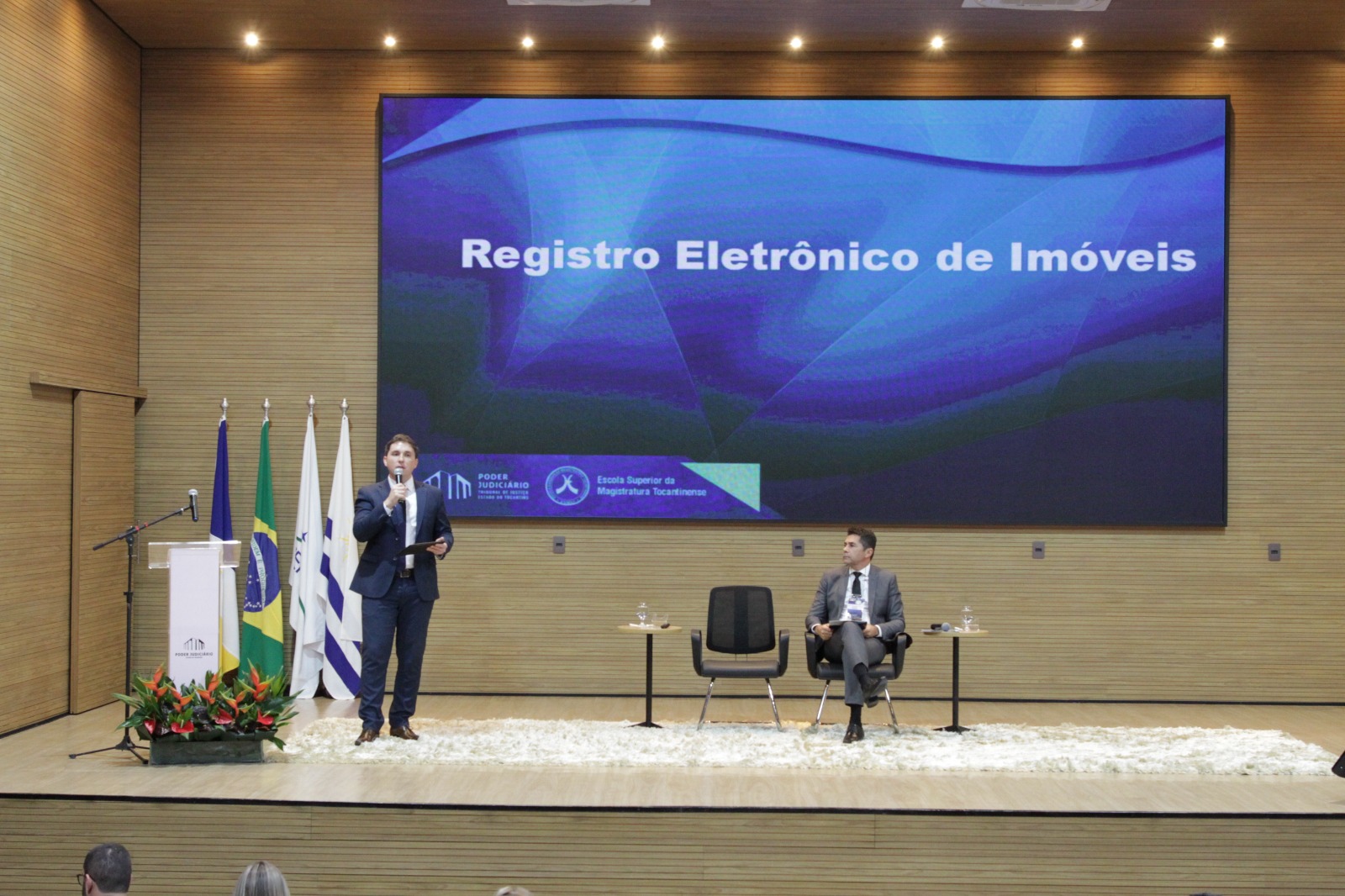
Speaker Fernando Pupo Mendes, registrar and Director of the National Operator of the Electronic Real Estate Service (ONR), addressed the topic of Electronic Registration, emphasizing the transformation of real estate registration in Brazil with the implementation of the electronic system. “Created in 2017 and active since 2021, the ONR aims to replace the traditional analog model with a fully digital registry, similar to online banking systems.”
With a view to the continuous development of tools and the integration of electronic documents into the real estate system, the speaker highlighted the importance of a robust and secure infrastructure, capable of carrying out operations in an automated manner and with legal validity.
“The implementation of the electronic real estate registration is still in its infancy, but the potential for transformation is enormous, especially with the creation of innovative tools that will bring more agility and security to the Brazilian real estate market,” he said.
New family configurations
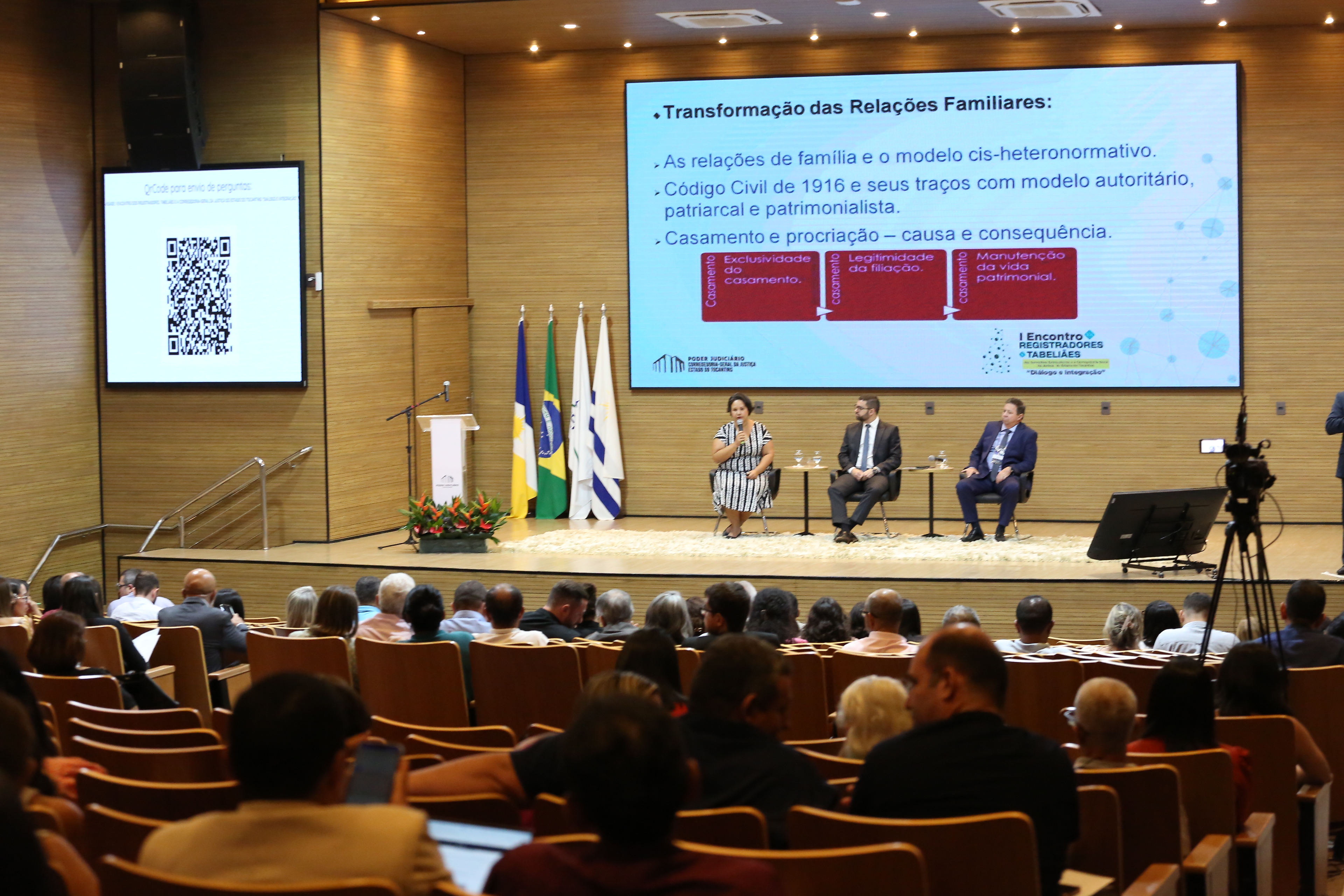
The civil registrar of Natural Persons of the city of Brejo of the Madre of Deus/PE, Emanoella Remigio, brought to the event an important reflection on the new family configurations and their impact on the Civil Registry. During her talk, Emanoella highlighted the changes in legal norms and the modern family structure, which have brought new challenges to the extrajudicial activity.
“Now, the civil registrar not only checks documents, but also carries out a detailed assessment of family ties, which brings enormous responsibility,” said Emanoella, explaining that the recognition of filiations, whether through civil or socio-affective means, requires a thorough analysis of the documents and evidence that demonstrate the constitution of the family.
Protest
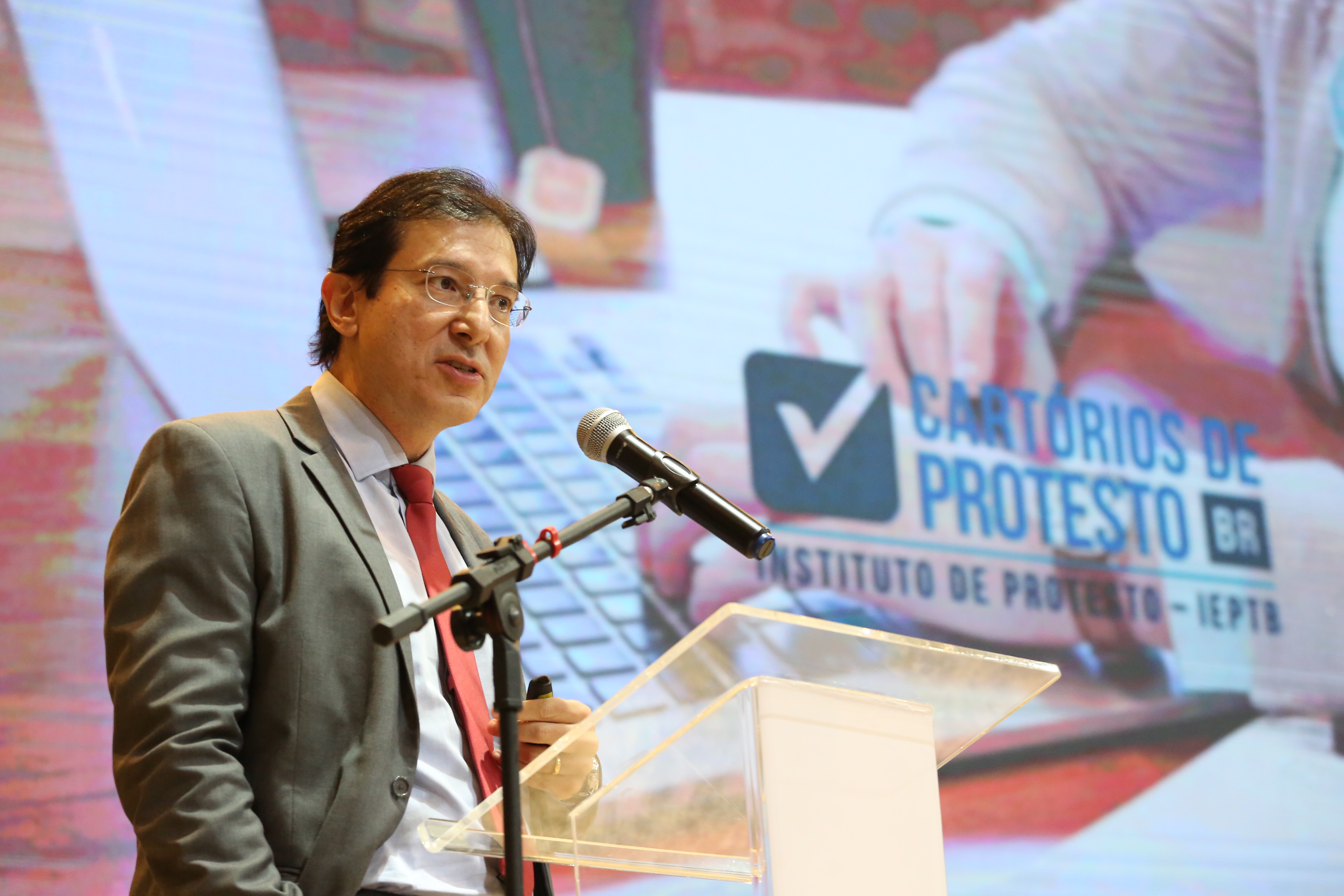
During the lecture on “Current Perspectives on Protest”, André Gomes Netto, notary and registrar of the 5th Office of the city of São João of Meriti/RJ and President of the Brazilian Institute of Securities Protest Studies (IEPTB), presented revealing data on the impact of securities protests in Brazil. “Protest has proven to be a powerful tool, with a credit recovery rate that exceeds 60% of protested titles, resulting in an injection of more than R$ 2 billion annually into the economy.”
The speaker also highlighted the expansion of electronic protests, which already account for 85% of transactions carried out in the country. “With digitalization, the deadlines for fulfilling obligations have decreased significantly, benefiting both creditors and debtors,” he explained, stressing that this modernization not only improves the efficiency of the service, but also expands access to protests, especially in more remote regions.
Gomes Netto also pointed out the next steps for the development of the protest system, such as integration with PIX and other payment systems. “We are moving towards an era in which protest will be fully integrated into the national financial system, offering even more legal security and contributing to the economic stability of Brazil,” he concluded.
Balance
At the end of the meeting, Chief of Justice Maysa Vendramini Rosal thanked the massive attendance of registrars and notaries from all over the State. She highlighted the interest of the participants and willingness to learn and update themselves, with the aim of providing society with a service of excellence. “The Judiciary of the State of Tocantins has a lot of respect for the extrajudicial work, whether in civil registry, real estate registry or notary public offices. We recognize the importance of this work, which is fundamental for our society, guaranteeing legal security. I'm very happy with this first meeting and I hope we can continue to improve our work,” she said.
“I think it's essential to highlight the importance of this event, which represents a significant enhancement for all the professionals involved. It has now been formally integrated into the regulations of the General Internal Affairs Department, which guarantees the continuity and strengthening of these meetings in future administrations. This brings direct benefits to the user, who is our main focus,” added the Assistant Supervising Judge for Notary and Registry Services, Esmar Custódio Vêncio Filho.
Participating in the event, the head of 1st Notary Public Office of the city of Gurupi, Mateus Pedro Oliveira Martins Rocha, highlighted the importance of the meeting for exchanging experiences and learning new things. “The lectures were excellent, especially the issue of notary minutes and innovations such as the certification of default and the deposit guaranteed by the Notary Public. This brings more legal certainty to those who seek our services,” he said.
